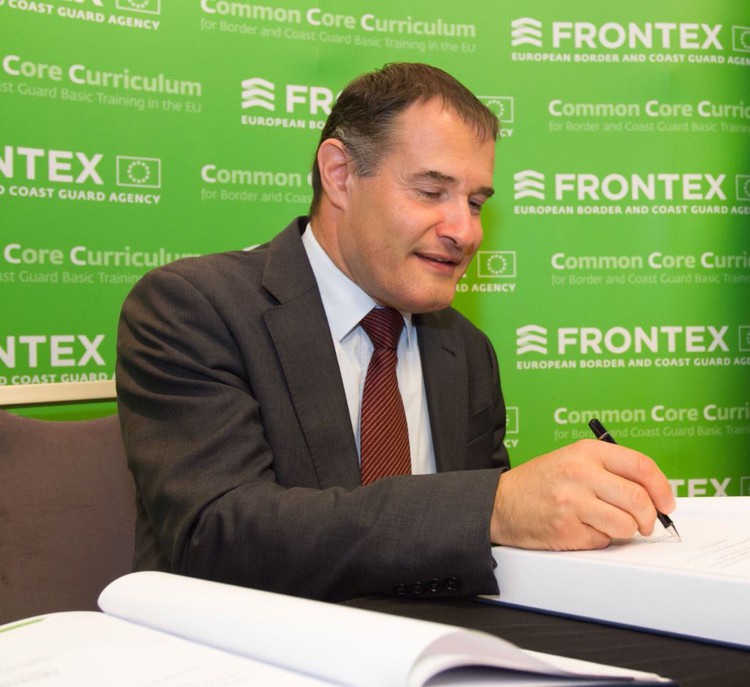Last week, Frontex Executive Director Fabrice Leggeri signed the Common Core Curriculum (CCC) for Border and Coast Guards Basic Training in the EU, an updated document that serves as a basis for training of border and coast guard officers throughout the European Union.
News
Frontex updates key training document for EU border and coast guard officers
2017-06-20

The core curriculum was updated to reflect the changing situation at EU’s external borders, as well as new Frontex tasks introduced by the European Border and Coast Guard Regulation last year. For the first time, it also focuses on training related to coast guard functions.
The document can be adapted to national laws, which in practice means that national authorities might choose additional training related to work at land, sea or air borders. It now also includes the principle of informal learning at work, which helps officers to gain a comprehensive understanding of their tasks.
The updated curriculum is consistent with the principles of the European Qualifications Framework for Lifelong Learning (EQF), which means that the related training will be recognised throughout the EU and will provide a reference point for educational standards for Frontex and member states.
After the completion of a training based on this curriculum, border and coast guard officers are ready to be deployed and carry out their operational tasks at home and abroad, including taking part in Frontex operations.
Training is one of the key tasks of Frontex, the European Border and Coast Guard Agency. Frontex has worked to harmonise border control in all EU member states, develop training curricula for border guards across the EU, identify needs and assist EU countries with training.
The Common Core Curriculum was first established 15 years ago when the European Council decided that common standards for border guard education are needed at EU level. It has been implemented in all EU member states and in several Frontex partner countries (non-EU/non-Schengen countries).
Its components include the history of border control, fundamental rights, national and EU legislation, border checks and border surveillance and combatting cross-border crime. Future border guards are also expected to acquire practical skills related to the use of national and European databases, first aid, as well as data security and protection.
The document has been developed by Frontex, after consultations with member states, the Frontex Fundamental Rights Officer, the Consultative Forum and UNHCR.